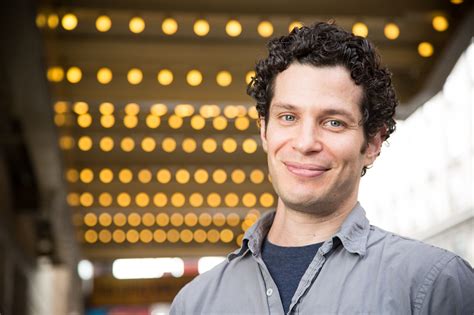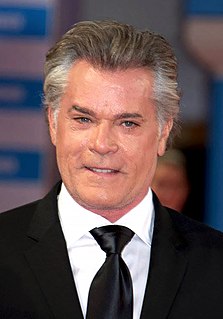A Quote by Todd Phillips
When I was younger I didn't really know what a director did: I knew I loved movies and I figured the actors made it up! And then when you get to 12 years old you start thinking, What does a director do? It was really an organic beginning: this looks like something I want to do, I can't believe people get paid to do it!
Related Quotes
People have a different idea of how movies are made than they really are. On a certain level, everyone throws ideas into the hopper. It's not like the actors are wind-up dolls that you push out onto the floor, play with, then put back in the box. You get people around you who you trust; the writer, the producer, the director and all the actors all contribute.
I've made quite a number of movies like Castaway and a few others where I'm the only guy in the movie and the only place to be is right next to the camera in costume ready to go in order to get it. The years, and more specifically probably the four months prior to beginning shooting, is where the big preparation is that the director does because I knew we were going to get on the set. And the good news is, if you're the boss, if it ain't good, you don't use it. You just cut it out.
I've never like had a system or a program, I always think that I don't know how to act. I'll adapt to any director because I don't really have a set way that I do things. If a director hires me and says, "I want you to get started right now and do this research, this research, this research and I want you to have every line memorized before you ever show up for the first day," then that's what I'll do.
A good director creates a playground for actors, and lets them go. The trick for a good director is in casting properly, and creating the playroom, and then they'll get stuff that they don't expect, and can't even direct. All the audience wants to believe is that whatever is happening, it is happening for the first time. They want to see the people within the work exchanging dialogue and action in that moment. There are not a lot of actors that can do that.
One of the challenges of being a director is often you don't get to work with your peers. You know, writers can write together, and as a director you get to work with so many wonderful actors and writers and designers. But it's pretty rare that you get a chance to partner in that way with another director.
We were doing Scarface many years ago...and I remember having my coffee and looking at the beach, the surf, and I saw a hundred people looking out into the ocean. I thought, what's going on? Did some whale get washed up to shore? So I stood up on the table to see what it was, and it was the director, Brian De Palma, standing there alone by the surf and they were all waiting for him. And I never forgot that because it represented to me what a director is, what a director does.
It's very bizarre though when you get hired and then the director will say, "I know how this goes." And you're thinking, "Wait a minute, I thought that I was doing this" but basically what they really want, especially if they wrote it, is they want you to do it as they imagined it. It's virtually impossible.
Actors become actors because they loved entertaining their family by putting on the lampshade and dancing around as a kid, ... That's not my personality. For me, the fun part of making movies is seeing it as a director sees it. I like the architecture of movies. I like knowing what's coming and working to set that up.
Your actors need to trust you as a director, but normally, I think you just need to have an open communication between the actors and the director. I think the director needs to really paint his or her vision to the cast and let them know the kind of mood that he or she is making. I think that's very important.
[Sylvester] Stallone and I were in a meeting for Rocky Balboa. We were laughing about something, and he looks at my mouth and says to the casting director, "Wow, your lip even hooks down like mine does." Then he looked at the casting director and nodded, and I guess that was the nod of saying, "Hire this kid." So yeah, I have a really crooked mouth. They don't work, but I can feel everything.
I loved making The Imitation Game and it's really gratifying to hear the audience's response to the character that I play. It was just a little thing that I did because I really liked the film and I liked Benedict [Cumberbatch] and I loved Morten's [director Morten Tyldum] previous film, Headhunters. For me, it was something I did thinking, "Wow, this is a lovely quality piece of work."






































